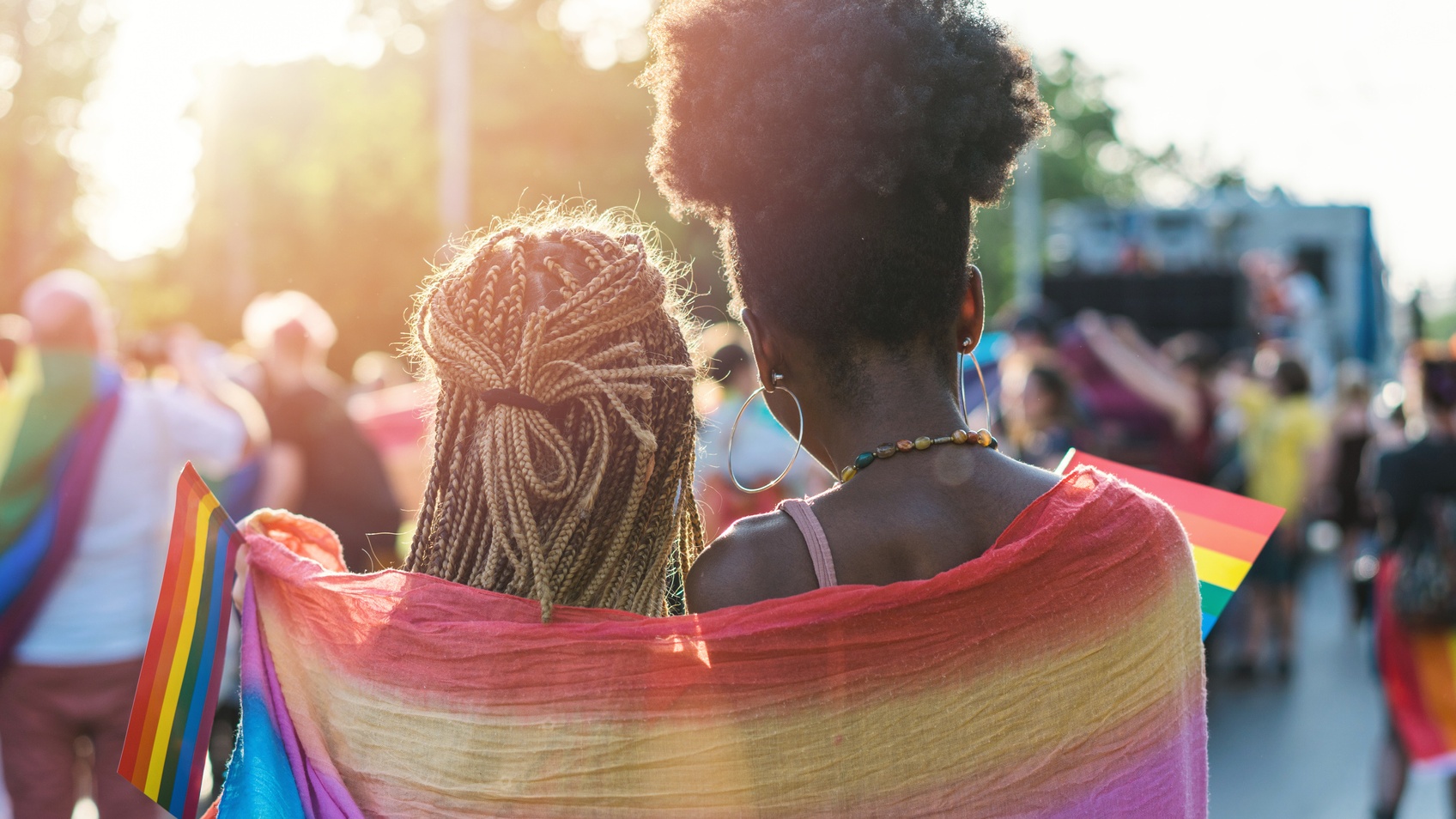A recently launched Instagram account is celebrating the lives and experiences of queer Black folks in Great Britain from the 1950s to 2000.
According to AnOther, "Black & Gay, Back in the Day" was founded by journalist Jason Okundaye and activist and organizer Marc Thompson. Thompson told the media outlet that the account is dedicated to presenting "an authentic representation of Black LGBTQ+ people before 2000."
"And that means capturing us in a range of settings – from protests to pride, to parties, to moments of intimacy, to individuals just being their true selves. That is the basic criteria for us," Thompson said.
The page pulls the images from the founders' personal archives as well as submissions from its community, as announced during its formal launching on February 1. The social media account now has more than 6000 followers.
"We’re both really pleased it’s been so gratefully received by the community," Thompson said. "Neither of us imagined that it would grow like this. I think what it demonstrates is there is an appetite for this kind of archive and this kind of history. People are hungry to know what happened in the past and where they come from. And I think that’s why it’s been successful."
Some of the featured pictures are of the founders in different aspects of their lives, including an image of Thompson with his first love, Oval, in 1992.
"The pictures that we have are of Black queer people together," Okundaye said. "Whenever you see representations of this demographic in the past, they’re often depicted as a kind of add-on to a white social network, which was not always not the case. Most Black queer people existed within Black culture. So it’s important to show them with ghetto blasters, at the Black gay club, in Brixton, in these sites of Black cultural heritage."
More than just an archive, though, Okundaye said that he wanted the account to feel like a family photo album.
"We wanted to get the sense that each person’s home is an archive and that these photographs, which were often taken on disposable cameras, are worthy of being presented in a historical display," he continued.
The two said they are proud of what they've accomplished with "Black & Gay, Back in the Day." Yet, while they're grateful for all of the mainstream media attention the account has brought them, they've also noticed a certain niche market missing from the coverage.
"If we can get featured by these mainstream outlets like BBC Radio, ITV News, GQ, The Face, then why have we not been picked up by a single gay media publication?" Okundaye said. "What we tend to find with gay media is that, for the most part, when they’re reporting news stories about Black queer people, they tend to be about traumatic incidents or something terrible that’s happened."
Okundaye continued that the lack of positive Black coverage within the LGBTQ+ community is something that he's experienced since the '80s.
"These outlets have always ignored us," he said. "And that just confirms why we need projects like this in the first place because we can’t rely on the broader LGBTQ+ community to record our stories, to preserve our memory, to integrate us. And we don’t even want that integration. We want to show that this is our space."
